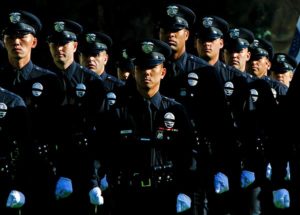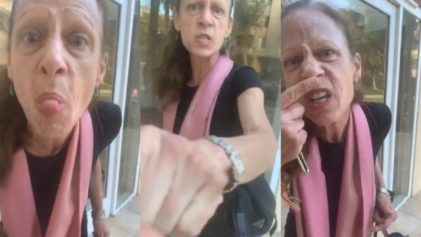A report by the Police Commission’s watchdog found that a three-year study of the Los Angeles Police Department discovered no cases of police bias, according to The Los Angeles Times. Police bias is a term used by the LAPD to refer to racial profiling.
However, even the head of the Police Commission found the report hard to believe.
“I don’t think anybody believes that there are actually no incidents of biased policing,” said Matt Johnson, president of the commission. “The problem is we don’t have an effective way of really adjudicating the issue.”
Johnson added that racial profiling was one of the most serious accusations that could be lobbied at police officers. The report, conducted by Inspector General Alex Bustamante, studied LAPD investigations from 2012-2014. The LAPD reported that it could not substantiate 1,356 allegations of police bias. Another police commission member also said he found the report hard to believe.
“While no doubt the vast majority of LAPD officers do not engage in biased policing, it strains credibility to suggest that … there were zero instances of biased policing,” Commissioner Robert Saltzman told The Times. “It should not be surprising that there is diminished trust in the LAPD given these results.”
According to The LA Times, racial profiling allegations are hard to prove because it’s difficult to determine what an officer is thinking when he makes a traffic stop. Phillip Atiba Goff, president and co-founder of the Center for Policing Equity at UCLA, told The Times that other police agencies have also struggled to prove racial profiling. He said the solution is better data. According to The LA Times, the commissioners said they hoped the introduction of body cameras would provide additional information.
“It’s excruciatingly difficult,” Goff said. “But it’s a failure of the way that we come to understand how we should be tracking racial bias — how we can and should be paying attention to it.”
The report, which essentially exonerates the LAPD, will be met with skepticism by a public that already distrusts the police. It also strengthens the argument for outside agencies, such as the U.S. Department of Justice, to investigate police departments. Craig Lally, head of the union that represents officers, told The Times it was important to get rid of racist officers, because they undermine public trust in the police department.
“We don’t want racist cops because that makes us all look bad. But there’s no way to really do it. I haven’t seen a real system in place that could weed that out,” Lally said.



